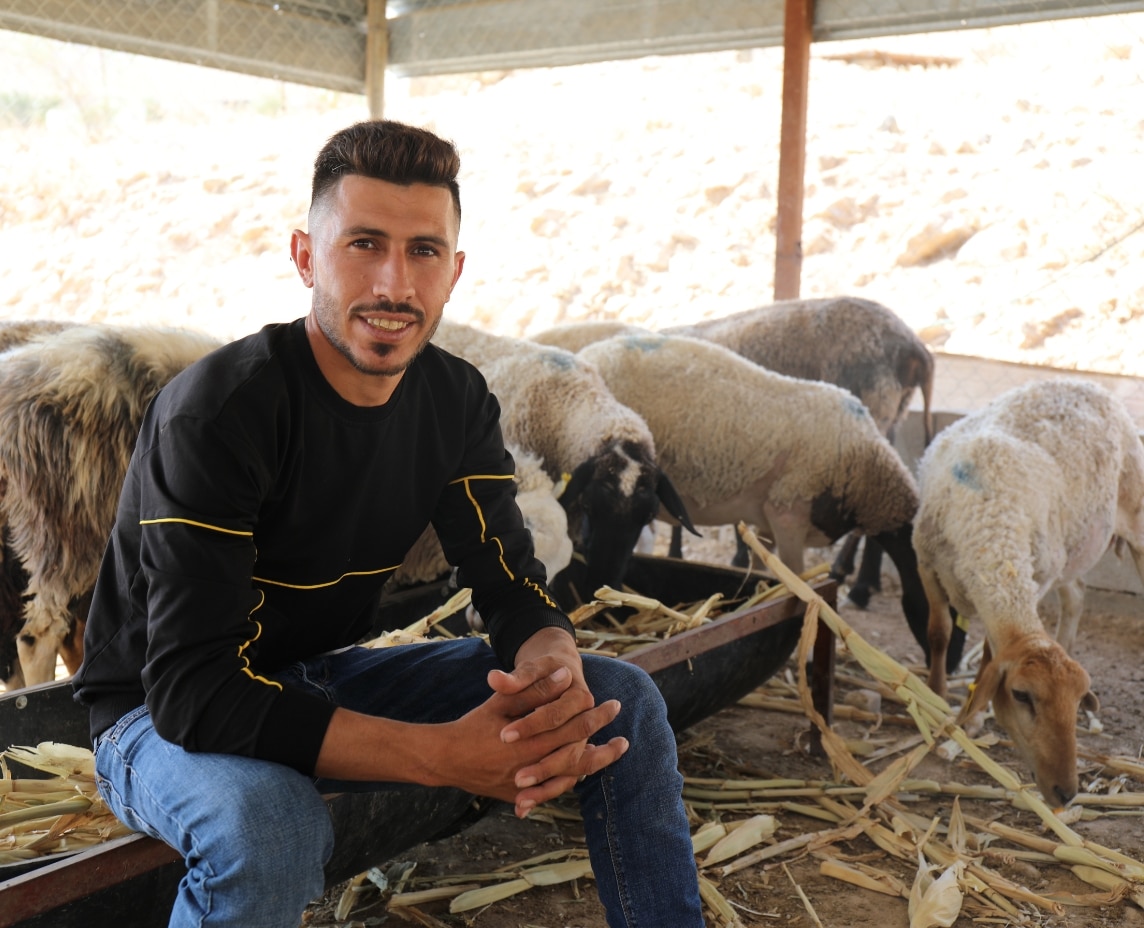Othman Al-Ghawanmeh is one of the many Bedouins in Palestine who faces multiple economic and social challenges in preserving their nomadic and pastoral culture and way of life.
These difficulties add to the already fragile situation in West Bank Region C. There, COVID-19 has had a negative impact on the economy and society, further increasing poverty and unemployment. In fact, currently, only 28% of the population has a job that guarantees their subsistence.
For this reason, Othman, despite having studied at Al Quds University, after graduating, had to settle for accepting precarious jobs that did not meet his needs.
“I found that there is no future, the economic situation is bad, living standards are unsatisfactory, and the wages are low.”
And it is that, in Area C of Palestine, the livestock and agricultural sector has been especially affected, despite the fact that 78% of families depend on agriculture to survive. Loss of labor, difficulties in marketing products, shortage of supplies or economic uncertainty are some of its causes.
Married with dependent children, Othman then reconsidered his situation, and opted to start his own farm business with Dorper sheep, a breed bred for meat and wool production and with a high capacity to survive in adverse conditions with little maintenance.
With no money in his pockets, but with great determination to build a better future for him and his family, he asked to participate in the project that the Social Promotion Foundation and its partner Palestinian Agricultural Association (PARC), with the financial support of Spanish Agency for International Development Cooperation (AECID), launched to help young people from Area C of the West Bank to start businesses linked to farm products, sustainable with the environment.
“I went to Palestinian Agricultural Association having nothing in my pocket, this was a challenge for me, and so I applied for this project.”
Othman’s Dorper sheep project is now a reality and in a short period of time it will be able to generate benefits that will transcend the mere economic plane, contributing significantly to improving its own environment and, ultimately, also Palestinian society.
“One piece of advice I would give to youth (…) Is to create their own projects, any project that could liberate them from working for others.”
Like Othman, another 17 young entrepreneurs have started their own businesses, under our project.





